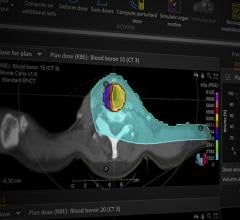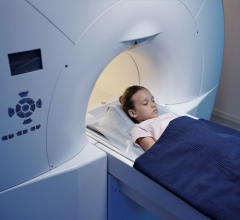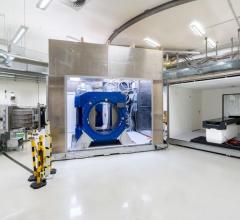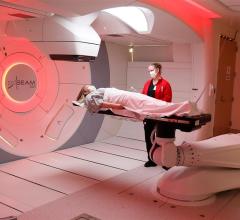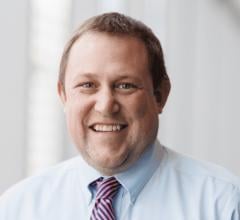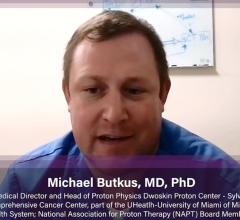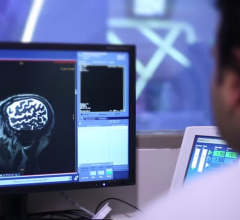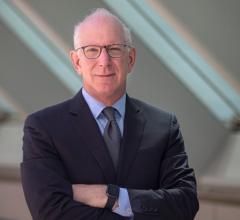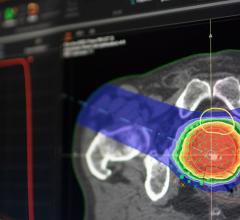
Image courtesy of Proton Therapy Center Czech.
January 6, 2015 — For two years now, Proton Therapy Center Czech (PTC) in Prague has been among the world’s top proton therapy facilities. Having treated altogether 750 patients from 22 world countries, the center has gradually opened most of its treatment rooms and launched a two-shift operation in reaction to the growing demand for proton beam therapy.
The center hosted several professional visits in 2014. Dutch specialists came to Prague to join the Czech and Dutch roundtable organized under the auspices of the Embassy of the Kingdom of the Netherlands. They were particularly interested in the case of a steady patient growth and their indication. With a similar goal, the center hosted a visit of 25 Swedish physicians and physicists involved in preparation of a new proton facility in Uppsala, Sweden. A group of British physicists from the National Physics Laboratory were interested in absolute measurement of proton radiation dosimetry. Thus, Prague has the first center to offer a double-precision measurement of its proton beam; thereby offering patients an even higher level of safety and security during proton irradiation.
Today, the PTC accepts patients with:
- CNS tumors
- Head and neck tumors
- Gastrointestinal tumors
- Urological malignity
- Retroperitoneal and abdominal sarcoma (besides GIST)
- Tumors in children
- Malignant lymphoma
Other indications to be treated soon are:
- Lung cancer – non-small cell carcinoma
- Eye melanoma
The most frequent patients at the PTC are men with prostate cancer. This corresponds to a United States study from April 2014. The study, presented at the annual conference of the National Association for Proton Therapy, confirmed 97 percent curability in men treated with early-stage prostate carcinoma. A sample of 4,000 patients who participated in the study underwent proton therapy five to 10 years ago. Most of them have not experienced a recurrence of their disease so far, do not suffer from impotency or incontinence, and 98 percent believe they made the best treatment decision for themselves.
Another group of tumors where proton therapy has benefitted and which are most frequently treated in PTC Czech are tumors of the brain and central nervous system, including meningeoma, glioma, chordoma, chondrosarcoma and neurinoma. There is a very good tolerance of proton beam therapy in case of this group of tumors. “Compared to conventional radiotherapy, proton therapy minimizes the dose to healthy tissue surrounding the tumor, thus decreasing the risk of unwanted side effects of treatment,” said Stepan Vinakurau, M.D.
One of the priorities of the Czech Proton Center is treatment of pediatric cancer patients. The children’s program of treatment and accompanying hospitalization and anesthesia was launched in April 2013. Today, PTC has treated 50 children from the Czech Republic and elsewhere. “The average patient is a child under 10 years old with a curable brain tumor or axial sarcoma,” explained Barbora Ondrová, M.D., a radiation oncologist responsible for the PTC’s pediatric treatment program. “Anesthesia was required for approximately 30 percent of them and 40 percent needed a combined treatment with concomitant chemotherapy.“
Not every patient has attracted as much attention as Ashya King, a British boy whose parents chose the Prague center for his treatment. Especially for children, the distance and admission time are an issue as there is a lack of specialized pediatric oncologists informed about all available treatment methods abroad.
Most countries do not have their own proton therapy centers. Thus, their representatives are looking for the treatment options abroad as well as seek help with installation of their own centers. This was also the reason for the visit of the Governor of Sichuan, a 90-million population Chinese province. Last but not least, an Agreement of cooperation was signed this year with Belarus, Bashkortostan and Kazakhstan. Their representatives are not only interested in treatment of their patients but also in training of their specialists and using of “know how” when building their centers.
The high level of expertise of the Czech specialists in proton therapy is confirmed by the fact that in 2016, PTC and Prague will host PTCOG 2016, an international congress in particle therapy. More than 1,000 world top oncologists, physicians and physicists specialised in proton and ion therapy are going to take part in this event.
For more information: www.proton-cancer-treatment.com

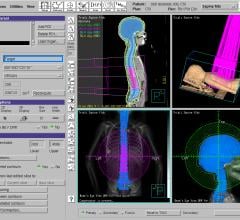
 May 06, 2024
May 06, 2024 
